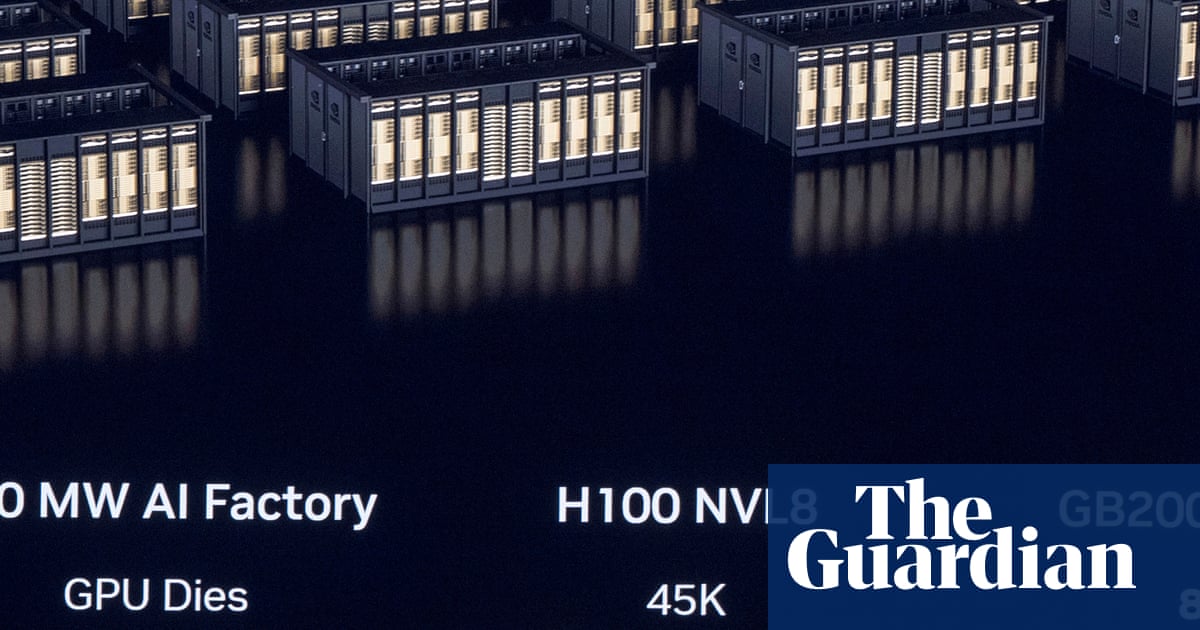Nvidia, the world’s leading chipmaker, announced on Thursday that it’s investing $5 billion in Intel and will collaborate with the struggling semiconductor company.
Nvidia said it will spend $5 billion to buy Intel common stock at $23.28 a share. The investment, which is subject to regulatory approvals, comes a month after the U.S. government took a 10% stake in Intel.
Nvidia CEO Jensen Huang called it “a fusion of two world-class platforms” that combines Intel’s strength in making conventional computer chips, known as CPUs, that power most laptops, with Nvidia’s focus on the specialized graphics chips that are critical for artificial intelligence.
“This partnership is a recognition that computing has fundamentally changed,” Huang told reporters Thursday. “The era of accelerated and AI computing has arrived.”
In morning trading, Intel shares jumped 25%, its biggest one-day percentage gain in decades. Nvidia shares added 2%.
For data centers, Intel will make custom chips that Nvidia will use in its AI infrastructure platforms. While for personal computer products, Intel will build chips that integrate Nvidia technology.
The agreement provides a lifeline for Intel, which was a Silicon Valley pioneer that enjoyed decades of growth as its processors powered the personal computer boom, but fell into a slump after missing the shift to the mobile computing era unleashed by the iPhone’s 2007 debut.
Intel fell even farther behind in recent years amid the AI boom that’s propelled Nvidia into the world’s most valuable company. Intel lost nearly $19 billion last year and another $3.7 billion in the first six months of this year, and expects to slash its workforce by a quarter by the end of 2025.
The U.S. government stepped in last month to secure a 10% stake — 433.3 million shares of non-voting stock priced at $20.47 apiece — making it one of Intel’s biggest shareholders. Federal officials said they invested in Intel in order to bolster U.S. technology and domestic manufacturing.
Huang said Nvidia has been in talks with Intel for about a year. Intel CEO Lip-Bu Tan, who joined the press call with Huang on Thursday, said he’s been talking to Nvidia since he was named Intel’s new leader in March.
“This is a very big, important milestone,” Tan said. “I call it a game-changing opportunity that we can work together.”
The deal is “bullish for U.S. tech,” Wedbush Securities analyst Daniel Ives said in a client note.
Ives said it brings Intel “front and center into the AI game” and, combined with the U.S. government stake, adds to “a golden few weeks for Intel after years of pain and frustration for investors.”
Nvidia, meanwhile, has soared because its specialized chips are underpinning the AI boom. The chips, known as graphics processing units, or GPUs, are highly effective at developing powerful AI systems.
The deal between the two chipmakers comes as China moves to be less dependent on U.S. semiconductor technology. This week, Chinese officials reportedly forbade several large domestic technology companies from purchasing Nvidia chips, and Huawei announced that it was expanding its development of AI chips and manufacturing.
While Nvidia and Intel will work together to develop new chips, a manufacturing deal has yet to be struck between the two. The potential access to Intel’s chip foundries by Nvidia poses a risk to Taiwan Semiconductor Manufacturing Company, which currently manufactures the tech giant’s flagship processors.
Huang has been in Britain on a visit that coincides with U.S. President Donald Trump’s trip to the country, and he has been attending events with the president along with other Silicon Valley bigwigs.
At a signing ceremony for a trans-Atlantic tech partnership on Thursday with British Prime Minister Keir Starmer, Trump mused that AI was “taking over the world.”
“I’m looking at you guys. You’re taking over the world, Jensen,” Trump said.
:max_bytes(150000):strip_icc()/GettyImages-2235931236-8eb9b40f14f94952aceafe8e15e7a666.jpg)
